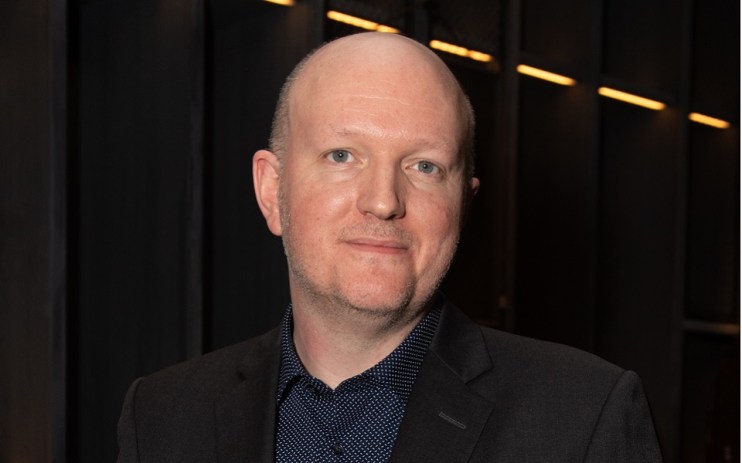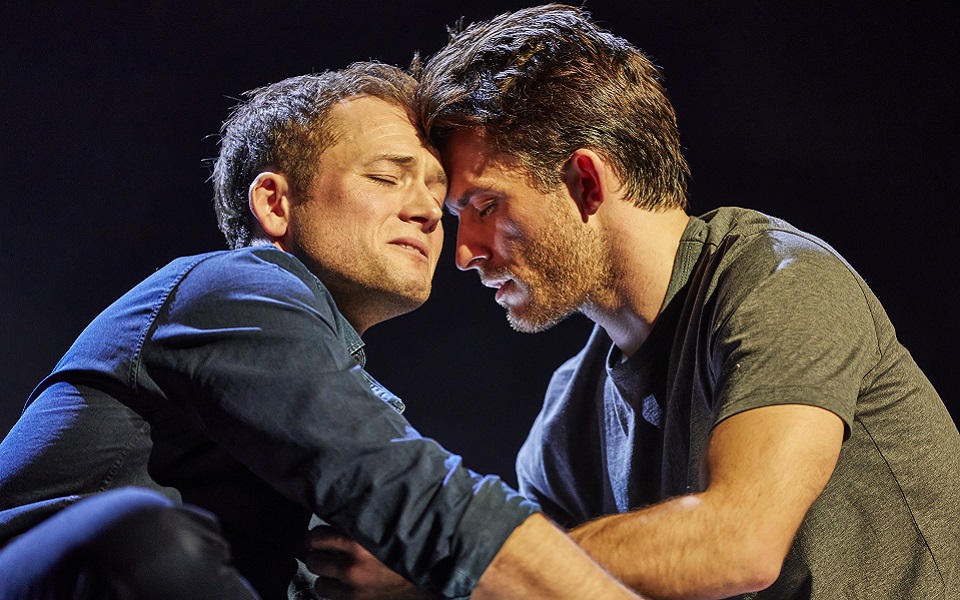Doctor Foster and Cock writer Mike Bartlett: ‘Solve problems in the theatre, not online’

You might not know his name but Mike Bartlett’s one of the most successful storytellers in Britain. His hit TV show Doctor Foster drew in almost 10 million viewers an episode in 2017, an unprecedented number given last year’s most-watched Christmas Day show attracted 7.4 million.
He’s also prolific: since the millennium he’s penned 24 plays and nine TV scripts, including the controversial BBC hit King Charles III, which imagined a time in the near future when Charles becomes king.
This spring is a big deal for Bartlett, with his breakthrough play, Cock, returning to the London stage for the first time since it premiered in 2009. That production played to just 80 people a night but now the show arrives in the West End. The run will coincide with two more of his plays being staged in London – The 47th at the Old Vic and Scandaltown at the Lyric Hammersmith.

“It’s bizarre and brilliant,” he says. “Brilliant and amazing.” Cock stars screen actor Taron Egerton, Elton John in Rocketman, making his West End debut alongside Bridgerton’s Jonathan Bailey in the new adaptation directed by Tony Award-winning Marrianne Elliott. It’s about “when you have too much love,” Bartlett says. “You love two people at the same time, and how you deal with that. I think that’s a very common experience.”
It’s also called Cock, which, you know, turns heads. Recently Egerton and Bailey weren’t allowed to say the C-word on BBC’s The One Show as it airs during primetime. “It’s interesting isn’t it, the level of shame in society about sex still,” says Bartlett. “We think we’re liberal and then we can’t even use the word of a male chicken on TV in case people find it rude.”
He says he doesn’t intend to offend – but his writing certainly taps into divisive conversations. Cock is about identities and labels, what it means to define as gay and then question your identity. He was concerned the play would have dated: “The conversation about sexuality has come such a long way in those thirteen years, would it still be relevant?”. But discourse around labelling and identity feels more pertinent than ever, with constantly-evolving conversations about queerness and pansexuality that often move beyond labels of gay, straight and bisexual.

On the extreme end of the labelling debate, there are controversial discourses about trans and other gender identities. Arguments posited by the likes of JK Rowling have been highly contentious and criticised by many gender theorists and entertainment industry figures, including all three Harry Potter leads; others have defended her position.
“Inevitably you put something on stage that carries meaning at the moment, and the fact it carries meaning means that people engage with it, and the fact they engage with it means they can be offended or be upset,” says Bartlett. “Something can hit them and they have a problem with it – that’s part of the discussion of making work.”
Amid the discourse around comedians like Jimmy Carr, who recently made a joke about ethnic cleansing for the sake of getting a laugh, Bartlett’s take is that offence can only be justified when it has “meaning.”
“The question is, is it done in good faith? In the writing and in the acting, we’re always thinking about those questions. There’s no bit on stage that we haven’t really thought about, so if there’s any offence caused, it’s never with the intention of hurting somebody. That idea of provoking a conversation that I think is of value is at the heart of what I do, but I’m never trying to hurt anybody, and that’s really important to me. There’s a commercial imperative, online particularly, to state views that cause people to become angry or upset – that way people engage with digital platforms more. And the people that make money from that are media companies.
“That’s what’s great about theatre. The chances of it producing a constructive end, a better end, is far higher than if you’re engaging in 140 characters with people you don’t know.”
These issues around labels also play out in Mike Bartlett’s private life – he chooses not to discuss his sexuality, and has a nuanced take on the debate around whether straight actors should play gay roles. Ben Whishaw, for example, the LGBTQ star of the 2009 version of Cock, is critical of straight actors playing queer parts, and It’s A Sin writer Russell T Davies believes straight actors should not play gay roles – but for Bartlett it’s more complex.
“What’s tricky is, are you going to say to the actor, ‘I want a full list of everybody you’ve ever slept with? I feel it’s up to an actor if they choose to identify their sexuality and they may not choose to do that, so it’s complicated. The push to get better and more accurate portrayals and more authentic portrayals on stage is a really good one but it would be absolutely wrong to force an actor to identify their sexuality in order to play a part. How do you reconcile those two things? You do it in a nuanced, complicated way, you try and do your best.”
These conservations all take place “in the shadow” of the conflict in Ukraine, Bartlett caveats. Much like Brexit and Covid, he sees it as his duty for these events to inform his future writing. “Every play I write now is taking place in a world where Covid happened and it’s a different world. In our perma crisis, as they call it, from Brexit to Ukraine, there’s no shortage of stories to write.”
Cock by Mike Bartlett plays at the Ambassador’s Theatre until June 4
